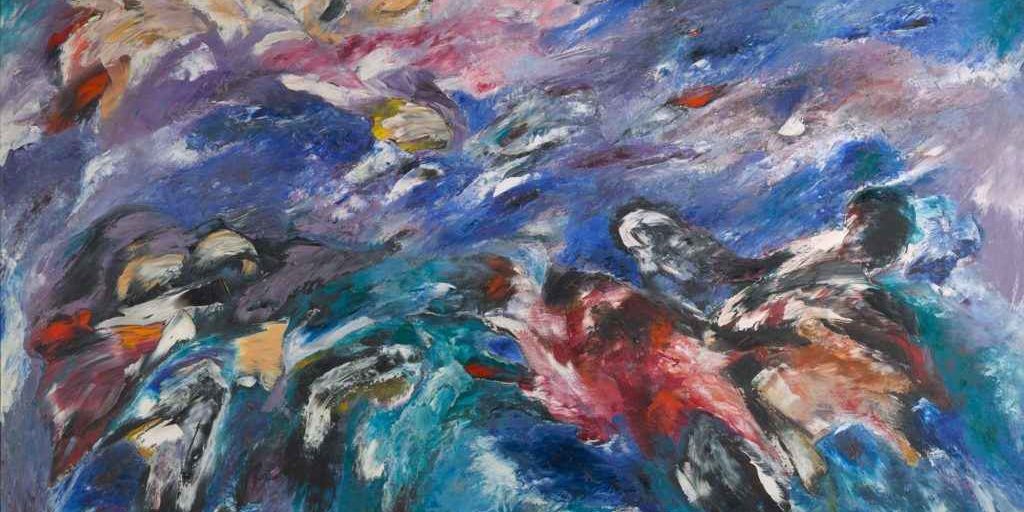
How to Read Judges Theologically (part two)
Judges does indeed recount one chapter in Israel’s history and in the unfolding drama of God’s redemption of the whole cosmos. The book portrays historical events from the settlement period (that period between the conquest of Canaan and the rise of monarchy in Israel), but its purpose is not merely historical. Crucial for reading Judges theologically is to grasp that its purpose is not historical but instructional. In other words, not every event from the settlement period of Israel’s history known to the author was included in the book and the events which are included were carefully chosen, arranged, and interpreted to instruct subsequent generations. If this is the case, what instruction does the book provide its audience, then and now?
Reading Judges as a Piece of Instructional Literature (i.e., History with a Purpose)
Ultimately and in various ways, Judges urges covenant allegiance to Yahweh that results in comprehensive societal flourishing (i.e., blessing) for Israel that spills out to the nations. It does so negatively by portraying the profoundly devastating results of a people which has rebelled against Yahweh, has become subservient to foreign gods, and has consistently ordered its society according to the principles and practices of the foreign nations—the result is comprehensive societal failure.
The book’s message of covenantal allegiance to King Yahweh (which leads to a rightly ordered society and comprehensive blessing) is communicated in every so many subtle and not-so-subtle ways in the book. Let me highlight three ways distinct ways (in the beginning, the middle, and the end of the book) that the narrator emphasizes this explicitly, providing a framework for the book.
“And the people served Yahweh all the days of Joshua, and all the days of the elders who outlived Joshua, who had seen all the great work that Yahweh had done for Israel [and they died]…and there arose another generation after them who did not know Yahweh or the work that he had done for Israel” (2:7, 10).
Here in the introduction of the book is the key to understanding the whole book (and settlement period of Israel’s history), which will be hammered home again and again in the book. The Old Testament sense of “knowing” here is not merely cognitive but is richer and thicker than that—it implies an intimate knowledge which forms the identity and shapes way of being/ethic of the knower. Deuteronomy urges various methods of remembering/not forgetting (i.e., knowing) Yahweh and his redemptive and preserving work—practices like the rehearsing of stories, the performing of rituals, and the singing of songs.[1] Clearly these “memory-enforcing” (which is to say loyalty-inspiring and identity-forming) habits had either been abandoned or distorted, and the result is that Israel became vulnerable and susceptible to other divine allegiances/influences. Which leads to the middle section of the book and a refrain we find there.
“Israel did evil in the eyes of Yahweh and served the [foreign gods]” (with some variation see for example 2:11, 13, 19; 3:6, 7; 10:6, 10, 13).
Framing the exploits of the judges are these phrases which indicate the narrator’s (and God’s) evaluation of the situation—of what is actually going in and through the events. On one side of the coin is the concept of “doing evil in the eyes of Yahweh” which is short hand language for covenant-breaking and amounts to rejecting God’s rightful status as divine king (see also the language of “abandoning” [2:12, 13], “forgetting” [3:7], “not remembering” [8:34], “disobeying” [6:10], and “forsaking” [10:6] Yahweh). On the other side of the coin is the notion of Israel’s allegiance to the foreign deities, which is most often expressed with the language of “serving” (which is ironic given Israel’s three-fold commitment to serving Yahweh at the end of Joshua) but also of “going after” (2:12, 19; 10:14), “bowing down to/worshiping” (2:12, 17, 19), “fearing” (6:10), and “whoring after” (2:17; 8:27, 33) the Canaanite gods. Whether rejecting Yahweh or devoting themselves to the foreign gods, the result is the same: the chaos that the events of the book demonstrate.
“In those days, there was no king in Israel, everyone did what was right in one’s own eyes” (17:5; 21:25 and in an abbreviated form in 18:1; 19:1).
As we enter the end section of Judges (chs. 17-21) we not only encounter the most troubling stories in the book but also this new refrain. The “no king and Israel” appears at the beginning of this final section, at the very end, and in two places in the middle, putting an indelible stamp on these chapters (and arguably the whole book). The message seems to be: without monarchy, anarchy reigns. The space doesn’t permit me to present all the arguments,[2] but it seems highly unlikely the book is arguing here at the end for human kingship as the answer to Israel’s problems (it seems at pains to resist the urge to see Israel’s problem as merely political). Consistent with the note in 2:10 that Israel did not “know” Yahweh and the various ways the book has indicated that Israel had shifted their allegiance from Yahweh to the Canaanite gods, the most likely interpretation of the “no king” refrain is that it refers to Israel’s rejection of Yahweh as king (the earliest implied interpretation of this comes in 1 Sam. 8:7-8). In other words, what the book has been saying all along, it drives home here at the end (four times!): the catastrophic failure of the settlement period is a result of divine treason. Israel’s rejection of Yahweh as king is the only proper explanation for the troubling behaviour we encounter in Judges, and, thus, the only proper solution is undivided allegiance to Yahweh that results in a way of being in the world that is consistent with his rule. That is the message of Judges.Israel’s rejection of Yahweh as king is the only proper explanation for the troubling behaviour we encounter in Judges. Click To Tweet
Reading Judges as a Carefully Crafted Literature
Of course, this message is mediated through the carefully crafted text of Judges. I’ve spent years studying the book, and the sophistication and attention to detail all oriented to unified goal never fails to impress me. I’ll limit myself in the following to highlight some of the broad contours of the book that help open Judges up theologically, leaving much of the details for the readers to pursue.
Judges has three broad sections. The book’s two-part introduction (1:1-3:6) provides the setting and circumstances for the book and also introduces readers to the cycle that characterizes the events of the settlement period (2:11-19). The cycle has five parts and looks like this:
- Sin (Israel does evil in the eyes of Yahweh)
- Sentence and servitude (Yahweh’s anger is kindled, and he judges the people by giving them into the hand of foreign oppressors)
- Supplication (Israel cries to Yahweh for deliverance)
- Saviour/Salvation (Yahweh raises up a deliverer who brings deliverance)
- Shalom (the land experiences rest)
This cyclical pattern announced in the introduction frames the body of the book which tells the stories of the various judges—from Othniel to Samson (3:7-16:31). However, although the cyclical pattern is established at the beginning and structures fairly consistently the first few Judges (Othniel, Ehud, Deborah/Barak), there is variation and by the time we get to Jephthah and Samson the cyclical pattern seems to be breaking down significantly (e.g., Yahweh does not raise up Jephthah, the people don’t cry out in the Samson narrative, and in neither the Jephthah or Samson cycle does the land experience rest at the end). In other words, the variations in the cyclical elements indicates that this middle section is more of a downward spiral than a cycle strictly speaking. The behaviour of the people and their leaders reinforces this downward spiral notion (as do many other features of the stories—e.g., the worsening treatment of women, the instances of Israelites killing Israelites, etc.).
The end section (chs. 17-21) abandons the cycle and consists of two sets of circumstances that start in intimate domestic settings but have national significance. The events of these chapters, as mentioned, demonstrate the worst and most shocking behaviour in the book and in that way fits with the logic of the degenerating pattern in the book. These events are, however, out of chronological order[3] and transport us back in time to the very beginning of the settlement period and the book (not to mention that there are numerous connections back to the introductory section of the book, indicating that the end is a circular ending). We might (just) be able to conceive of how Israel could, over the course of generations, descend to this level of wickedness; however, that this kind of behaviour emerged so early in the settlement period seems unthinkable and should prompt the reader to consider how it could be, turning back to the book to find all the subtle and obvious clues. The answer seems to be that any generation that has not been properly formed to “know” God, splitting their loyalty or deserting God altogether, is capable to extremely corrupt and twisted behaviour.
Conclusion: Judges—A Book for Such a Time as This
Jesus came announcing the miracle that in him the kingdom of God had arrived. He urged his followers to take up their cross and follow him, and said that as the father had sent him to accomplish his purpose for the world, so Jesus was sending his followers to bring that reality to bear in their lives and mission. Drawing on Israel’s ancient calling in Exod. 19:5-6, the apostle Peter calls his first century Christian audience a “royal priesthood” and a “holy nation” (1 Pet. 2:9). In other words, although there are differences between Israel and the church today (e.g., the church is not a political entity), the essence of Israel’s calling is the essence of the calling of Christ-followers. That being the case, Judges holds up a mirror to Christians today. As I’ve written elsewhere, Is our commitment to the idols of our day compromising our calling to be faithful witnesses to Jesus and is countercultural kingdom for the sake of the flourishing of all people? Click To Tweet
Judges stands a prophetic clarion call for the people of God today. To what extent have the seeds of idolatry taken root and choked out our call to bear the image of Christ in the context of the twenty-first century? Is our commitment to the idols of our day compromising our calling to be faithful witnesses to Jesus and is countercultural kingdom for the sake of the flourishing of all people? Are we looking for solutions in all the wrong places, retreating into pietistic isolationism, or putting our trust in the wrong things (e.g., authoritarian government)?[4]
If we have ears to hear the uncomfortable message of Judges and learn from the lessons it teaches, by the grace of God we might start tearing down the idols that compromises our witness and root ourselves more fully in Christ, bearing witness with our whole being a way that is consistent with his reign.
**Read Dr. Beldman’s first part here.
Footnotes
[1] A.J. Culp calls these “vectors of memory” and insightfully explains how they function in Deuteronomy; see A.J. Culp, Memoir of Moses: The Literary Creation of Covenantal Memory in Deuteronomy (Mineapolis: Fortress Academic Press, 2019).
[2] See David J.H. Beldman, The Completion of Judges: Strategies of Ending in Judges 17-21 (Siphrut 21; Winona Lake: Eisenbrauns, 2017), 114-121; this is worked out in my commentary: Judges (The Two Horizons Old Testament Commentary; Grand Rapids: Eerdmans, 2020).
[3] See the notes in 18:30 and 20:28 which places these events in a generation twice removed from Moses/Aaron and, thus, very early in the settlement period. For a detailed argument about chronology and its rhetorical function see Beldman, Completion of Judges, 126-143.
[4] Beldman, Judges, 3.

